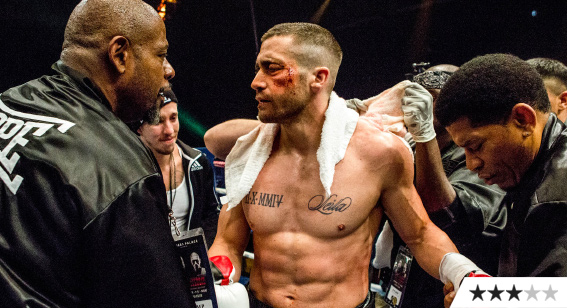Review: Southpaw

Jake Gyllenhaal’s appetite for physical transformation continues apace here after the emaciation of Nightcrawler, but while he more than looks the part of light heavyweight boxer Billy Hope in physique, technique and intent, Southpaw’s lead is let down by an overly conventional tale that fails to distinguish itself. While the film’s first act traces a champ’s fall from grace, Raging Bull this ain’t. And despite a familiar redemptive arc commencing, it’s not The Fighter either.
Like David Tua’s career, the film coasts along on the skills of a supremely talented individual while seldom giving its all. The fight scenes are visceral and gripping, with director Antoine Fuqua successfully showcasing Gyllenhaal’s pugilism and placing the audience on the receiving end of a pummelling. Fight fans should know, though, that bouts only make up the opening and closing rounds of the film, with the majority of Southpaw following Hope’s sudden, tragic, decline and subsequent personal rehabilitation.
As too many additional threads are introduced, from crooked management to underprivileged kids, Southpaw creaks under the weight of too many elements, inevitably reduced to almost the point of cliché. Sons of Anarchy writer Kurt Sutter has overstuffed a screenplay (originally intended for Eminem) to the film’s detriment, only to discard plenty as it reaches a predictable climax.
Perhaps this is a consequence of his inexperience in writing for the big screen, Southpaw being Sutter’s first feature, but whatever the reason, it proves a distraction from Gyllenhaal’s powerful turn that would have benefited from tighter focus and increased plausibility. Nevertheless, his committed performance makes the film watchable, aided by supporting efforts from Rachel McAdams, Forrest Whitaker, and you know what? Even 50 Cent.
Want More Like ‘Southpaw’? Check These Out: Warrior | The Fighter | Raging Bull
















